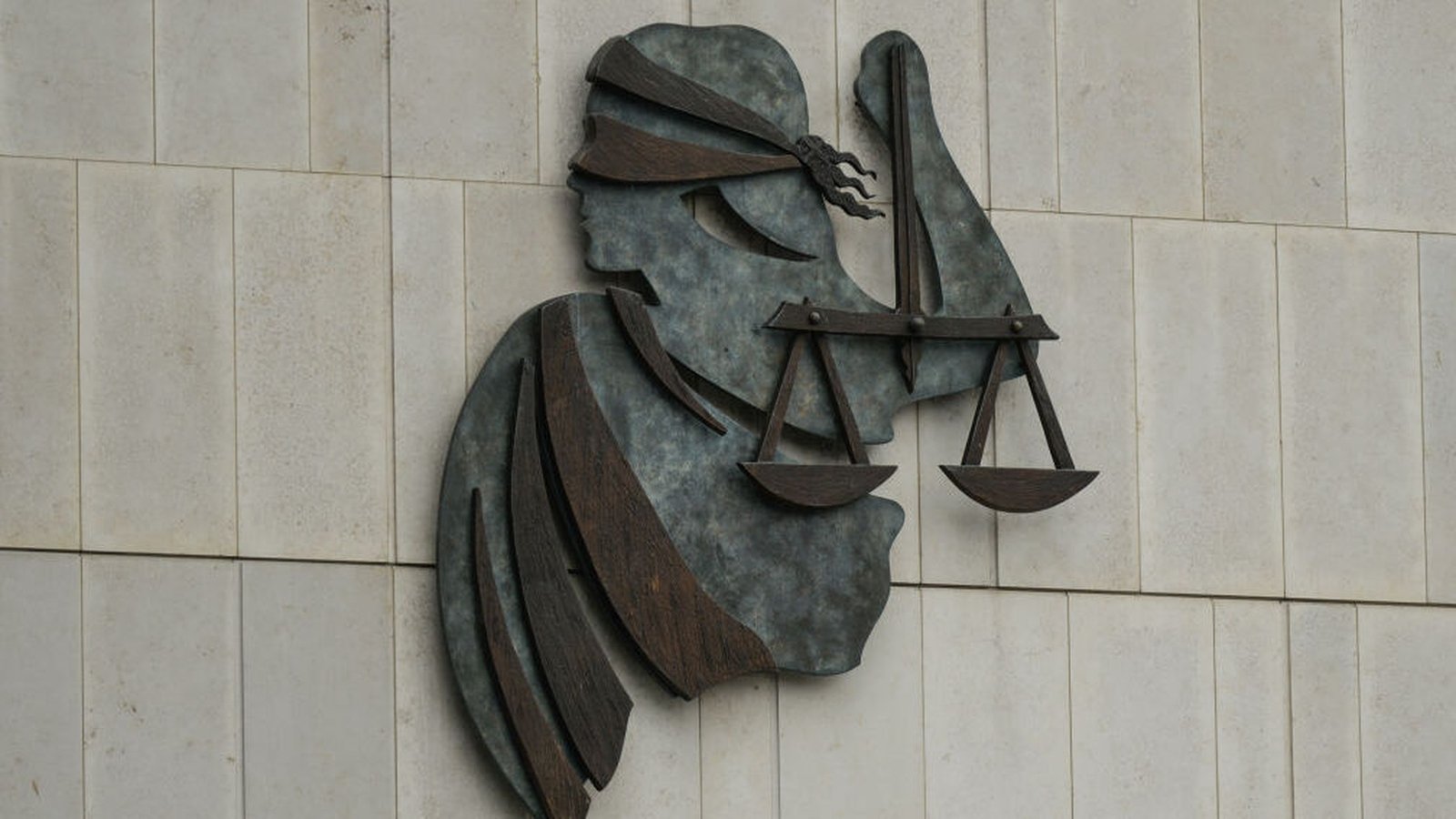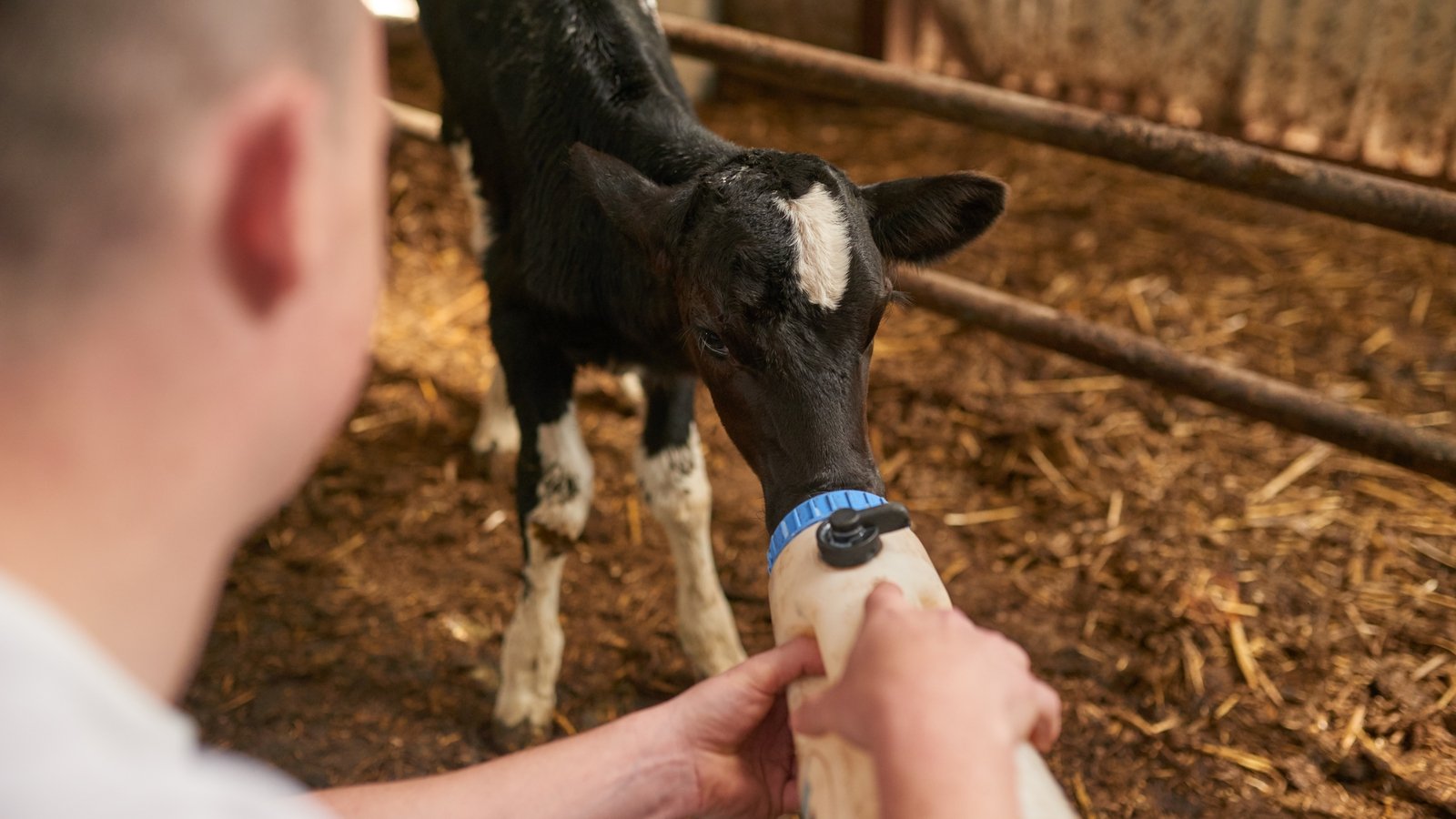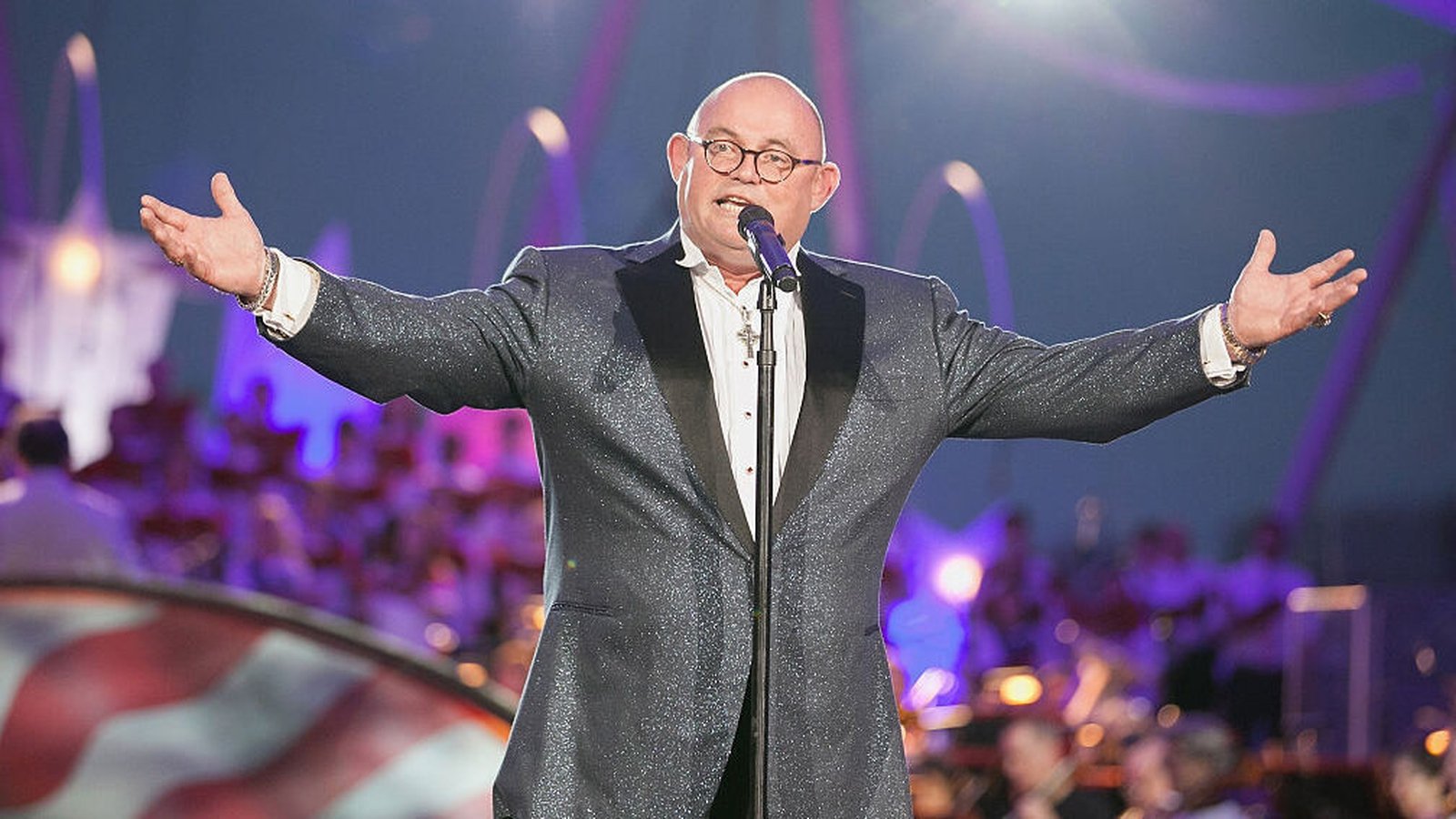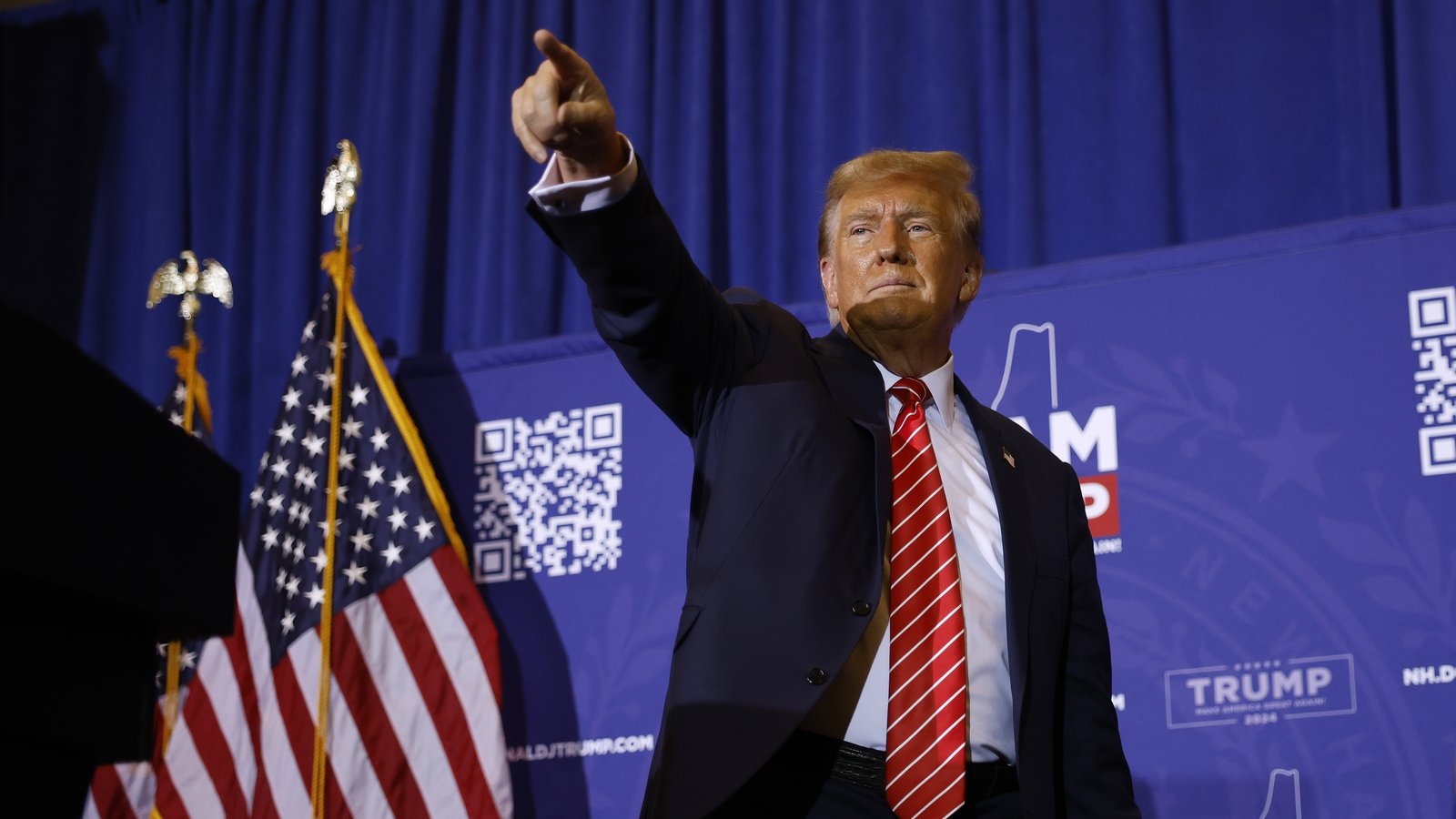French ministers say election risks stoking unrest
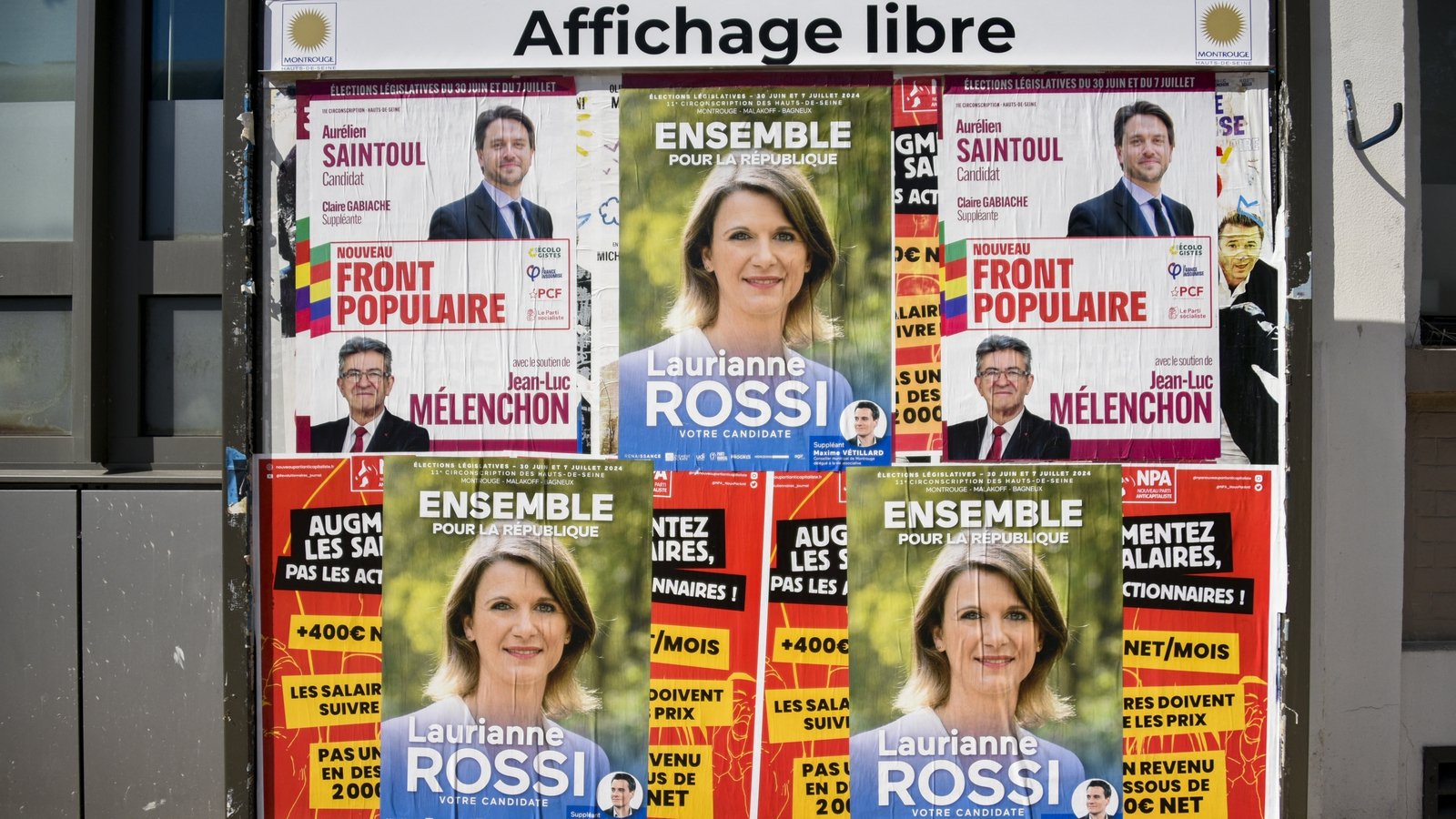
France could face civil disorder and violence connected to snap parliamentary elections in which the far-right looks poised to win the largest share of the vote, two ministers from President Emmanuel Macron’s centrist government have said.
Marine Le Pen’s nationalist, anti-immigrant Rassemblement National (RN) came first in European Union elections two weeks ago, prompting President Macron to dissolve parliament and call elections that will take place just before the start of the Paris Olympics on 26 July.
The interior and finance ministers expressed worry that the far-right’s success and the polarisation in French politics and society could lead to a surge in civil unrest.
“I fear for order, for relations between citizens, for serenity, for civil peace,” Finance Minister Bruno Le Maire said on France Info radio.
“I don’t see the RN as a factor of stability and peace. I see it as a factor of disorder and violence,” he said.
RN leader Jordan Bardella, who could be prime minister if the RN wins the election, with Mr Macron staying on as president in a power-sharing arrangement, disputed at a press conference the assertion that the RN could be a factor of disorder.
Opinion polls suggest RN has the most support ahead of the first round of voting on 30 June, with a new alliance of left-wing parties, the New Popular Front (NFP), in second place and Macron’s centrist Together group in third.
A run-off will take place on 7 July.
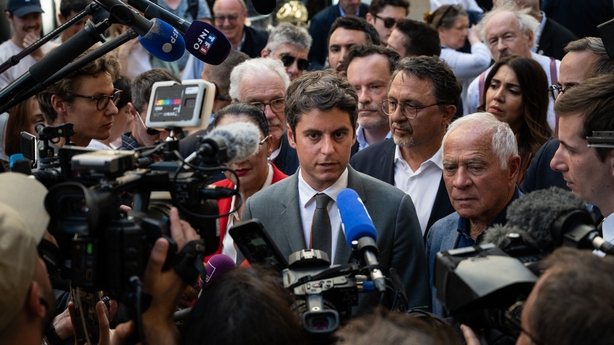
Interior Minister Gerald Darmanin warned of the potential for “extremely strong tensions”.
He told RTL radio that this was a concern not just for the election period, but also for the autumn return to work after the August summer break.
The RN, whose forerunner the National Front was long a pariah in French politics due to the openly antisemitic views of its founder Jean-Marie Le Pen, has tried hard to detoxify its brand under the leadership of his daughter Marine Le Pen.
But its opponents say their concerns are not only about the party itself but also the attitude of some of its more fringe supporters.
France’s openly gay prime minister Gabriel Attal who is leading the centrist camp’s campaign, said last week that he feared xenophobes of all stripes would feel empowered by an RN win.
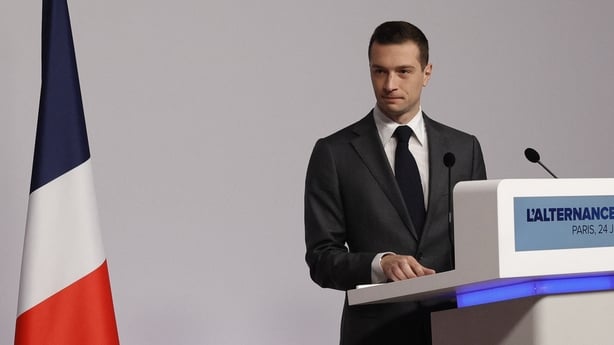
Mr Attal cited media reports of a suspect in a homophobic attack telling police that he was looking forward to a far-right victory because it would make it easier to assault gay people.
“You see a form of hate that would be liberated, authorised in a way,” Mr Attal told reporters.
RN leader Jordan Bardella said his party was ready to govern as he pledged to curb immigration and tackle cost-of-living issues ahead of the country’s most divisive election in decades.
“In three words: we are ready,” the 28-year-old a press conference.
Mr Bardella, credited with helping the RN clean up its extremist image, has urged voters to give the eurosceptic party an outright majority to allow it implement its anti-immigration, law-and-order programme.
“Seven long years of Macronism has weakened the country,” he said, vowing to boost purchasing power, restore order and change the law to make it easier to deport foreigners convicted of crimes.
He reiterated plans to make it harder for people born on French soil to gain citizenship and to cut “spending that favours immigration”.
“It’s been 30 years the French have not been listened to on this subject,” he said.
Mr Bardella added that the RN would focus on “realistic” measures to curb inflation, primarily by cutting energy taxes.
He also promised a “big bang of authority” in schools, including a ban on mobile phones and trialling the introduction of school uniforms, a proposal previously put forward by Macron.
On foreign policy, Mr Bardella said the RN opposed sending French troops into Ukraine, as mooted by Macron, but would continue to provide logistical and material support.
He also said his party, which had close ties to Russia before its invasion of Ukraine, would be “extremely vigilant” in the face of Moscow’s attempts to interfere in French affairs.
Moscow was accused of meddling in the 2017 election that brought the europhile Macron to power.

